
Overview
Explore ozone gas detector applications in shipping and cargo. Learn about industry leaders & IT integrators for comprehensive solutions.
The shipping and cargo industry is a dynamic and complex field that underpins global commerce, requiring a coordinated effort among various stakeholders to facilitate the seamless movement of goods across the globe. Shipping lines operate fleets of vessels that transport large volumes of cargo between ports worldwide. These vessels include container ships, tankers, bulk carriers, and specialized ships designed for specific types of cargo, such as refrigerated goods or vehicles. Freight forwarders act as intermediaries, coordinating the shipment of goods on behalf of exporters and importers, and ensuring that cargo is transported efficiently and cost-effectively.
Depending on specific features and functions, GAO Tek’s Ozone gas detectors sometimes referred to as ozone monitors, ozone sensors, ozone analyzers, ozone detection systems, ozone measurement devices, ozone level detectors, ozone concentration monitors, ozone alert devices, ozone detection instruments, and ozone safety monitors.
Furthermore, GAO Tek’s ozone gas detectors are further grouped into:
Alarm-enabled, Bench Top, Electrochemical, Handheld, High precision, Outdoor, Data logging, Multi-gas detection, Rugged, Wide-range, and Wireless
GAO Tek’s Ozone gas detectors have the following applications in the shipping and cargo industry:
- Cargo Hold Monitoring: GAO Tek’s ozone gas detectors are essential in monitoring the air quality within cargo holds, especially when transporting goods sensitive to ozone, such as certain pharmaceuticals and food products. Detecting and controlling ozone levels helps prevent the degradation of these goods, maintaining their quality during transit.
- Container Sterilization: Ozone is often used for sterilizing shipping containers due to its strong oxidizing properties. GAO’s ozone gas detectors ensure that ozone levels are adequately maintained during the sterilization process and verify that residual ozone has been safely reduced before containers are loaded with cargo, protecting both the goods and personnel from exposure to harmful concentrations.
- Shipboard Air Quality: In the confined environments of ships, maintaining good air quality is vital for the health and safety of crew members. GAO’s ozone gas detectors are used to monitor and control ozone levels generated by air purification systems. This ensures a safe living and working environment, mitigating the risks associated with prolonged exposure to high ozone concentrations.
- Refrigerated Cargo Units: Refrigerated containers, or reefers, often utilize ozone for their antimicrobial properties to preserve perishable goods such as fruits, vegetables, and seafood. GAO Tek’s ozone gas detectors are employed to monitor and regulate ozone concentrations within these units, ensuring that levels remain within safe and effective ranges to prolong the shelf life of the cargo without compromising safety.
- Compliance with Regulations: The Shipping and Cargo industry is subject to stringent environmental and safety regulations, including those related to air quality and hazardous substances. GAO’s ozone gas detectors help ensure compliance with international and national standards, such as those set by the International Maritime Organization (IMO) and other regulatory bodies. Accurate monitoring and reporting of ozone levels are essential for adhering to these regulations and avoiding penalties.
- Emergency Response: In the event of an accidental release of ozone, GAO’s ozone gas detectors provide immediate alerts, enabling swift response actions to protect personnel and cargo. This rapid detection is crucial for implementing emergency procedures, such as ventilation or evacuation, thereby minimizing exposure and potential health risks.
- Maintenance of HVAC Systems: Ozone is used in some shipboard HVAC systems for disinfection purposes. GAO Tek’s ozone gas detectors monitor these systems to ensure they are operating correctly and that ozone levels do not exceed safety thresholds. This is important for maintaining a safe environment within the ship and ensuring the HVAC systems are effective and compliant with safety standards.
More information on ozone gas detectors and their applications in other industries can be found on this page
This category page lists related products
Systems in the Shipping and Cargo industry Utilizing Ozone Gas Detectors
Here are some popular systems in the shipping and cargo industry using ozone gas detectors:
Container Sterilization Systems
- Ozone Generation Units: These systems generate ozone for sterilizing containers, ensuring they are free from bacteria, viruses, and other contaminants before loading cargo. Integrated ozone gas detectors monitor and control ozone levels during the process.
- Sterilization Management Software: Software platforms manage and document the sterilization process, providing real-time data on ozone concentrations and ensuring compliance with safety standards.
Refrigerated Cargo Monitoring Systems (Reefers)
- Ozone Injection Systems: Utilized for preserving perishable goods by injecting controlled amounts of ozone to prevent microbial growth.
- Reefer Management Software: Monitors and logs ozone levels within refrigerated containers, ensuring optimal conditions for cargo preservation and alerting operators to any deviations.
Shipboard HVAC Disinfection Systems
- HVAC Ozone Disinfection Modules: These modules integrate with ship HVAC systems to disinfect air circulated throughout the vessel. Ozone gas detectors ensure ozone levels are safe and effective.
- HVAC Control Software: Manages the disinfection process, integrating with ozone gas detectors to provide real-time monitoring and control, ensuring air quality standards are met.
Cargo Hold Monitoring Systems
- Ozone Detection Sensors: Installed in cargo holds to continuously monitor air quality, specifically ozone levels, protecting sensitive goods and ensuring a safe environment.
- Cargo Monitoring Software: Aggregates data from multiple sensors, providing comprehensive monitoring of cargo hold conditions, and alerting operators to any hazardous ozone levels.
Shipboard Air Quality Management Systems
- Air Quality Monitors: These systems include ozone gas detectors to ensure that ozone levels in living and working areas are within safe limits.
- Environmental Control Software: Integrates with air quality monitors to provide a holistic view of onboard air conditions, enabling proactive management and reporting.
Emergency Response Systems
- Ozone Leak Detection Systems: Critical for detecting accidental ozone releases in various parts of the ship, triggering alarms, and activating ventilation systems.
- Emergency Management Software: Coordinates response actions, logging incidents, and providing real-time updates to ensure swift mitigation of hazards.
Ozone Compliance and Reporting Systems
- Compliance Monitoring Instruments: Ozone gas detectors specifically calibrated to meet regulatory requirements for emissions and air quality.
- Compliance Reporting Software: Automates the collection and reporting of data from ozone gas detectors, ensuring adherence to international and national regulations, and generating necessary compliance documentation.
Ozone-Enhanced Cargo Security Systems
- Ozone-Based Sterilization Units: Used in high-security cargo scenarios where additional sterilization measures are required to prevent contamination.
- Security Management Software: Tracks and records the sterilization process, integrating with security protocols to ensure the integrity of high-value or sensitive cargo.
GAO Tek’s targeted markets are North America, particularly the U.S. and Canada.
Complying with Government Regulations
GAO Tek’s ozone gas detectors comply or help our customers comply with U.S. government regulations such as:
- National Ambient Air Quality Standards (NAAQS)
- Marine Transportation System National Advisory Committee (MTSNAC)
- MARPOL Annex
- Chemical Facility Anti-Terrorism Standards (CFATS)
- NIOSH Pocket Guide to Chemical Hazards
- Threshold Limit Values (TLVs) and Biological Exposure Indices (BEIs)
- Clean Air Act (CAA)
- National Emission Standards for Hazardous Air Pollutants (NESHAP)
- American Bureau of Shipping (ABS) Rules for Building and Classing Marine Vessels
- Clean Water Act (CWA)
GAO Tek’s ozone gas detectors comply or help our clients comply with Canadian regulations such as:
- Canadian Environmental Protection Act (CEPA)
- Ozone-Depleting Substances and Halocarbon Alternatives Regulations
- Transportation of Dangerous Goods Regulations (TDGR)
- Canada Labour Code
- Marine Transportation Security Regulations
- Fisheries Act
- Health of Animals Regulations
- Canada Shipping Ac
- Food and Drugs Act
- Canada Occupational Health and Safety (COHS) Regulations
- National Energy Board Act
Case Studies of Ozone Gas Detectors in the Shipping and Cargo Industry
Ozone gas detectors are sometimes called ozone monitors, ozone sensors, ozone analyzers, ozone detection systems, ozone measurement devices, ozone level detectors, ozone concentration monitors, ozone alert devices, ozone detection instruments, and ozone safety monitors.
Here are some practical examples of using ozone gas detectors in the shipping and cargo industry:
The Port of New York and New Jersey implemented ozone gas detectors in cargo handling areas to comply with environmental regulations and safeguard workers’ health. This initiative improved air quality monitoring, enabling better control of ozone levels and reducing the risk of harmful exposure, thereby enhancing overall safety within the port facilities.
The Port of Chicago integrated an ozone detection system in cargo hold areas to ensure safe working conditions and regulatory compliance. This implementation heightened awareness of ozone levels among workers, leading to improved ventilation practices and decreased occupational health risks.
The Port of Houston installed ozone gas detectors in refrigerated cargo units to monitor and regulate ozone levels, optimizing conditions for perishable goods. This initiative resulted in reduced cargo spoilage and losses, generating cost savings for shippers and enhancing efficiency in cargo handling operations.
The Port of Los Angeles integrated ozone gas detectors into cargo hold monitoring systems to ensure compliance with air quality regulations and protect sensitive cargo. This implementation enhanced cargo quality assurance, leading to fewer claims of damaged goods and improved customer satisfaction.
The Port of Vancouver deployed ozone gas detectors in refrigerated cargo units to maintain optimal ozone levels for preserving perishable goods during transport. This initiative improved cargo quality and extended the shelf life of products, resulting in higher value-added exports and increased competitiveness in global markets.
The Port of Montreal utilized ozone gas detectors in cargo hold ventilation systems to monitor and control ozone levels, ensuring safe working conditions for port personnel. This implementation reduced occupational health risks and improved worker satisfaction, leading to higher retention rates and a more resilient workforce.
GAO RFID Inc. RFID Hardware, a sister company of GAO Tek Inc., is ranked as the top 10 RFID suppliers in the world. Its RFID, BLE, and IoT products have also been widely used in the shipping and cargo industry.
Port and harbor construction industry
Use of Ozone Gas Detectors with Leading Software and Cloud Services in the Shipping and Cargo industry
GAO Tek has used or has facilitated its customers to use GAO’s ozone gas detectors with some of the leading software and cloud services in their applications. Examples of such leading software and cloud services include:
- Ozone Monitor Software
- Cargo Monitoring Cloud
- Shipboard Air Quality Management System
- Ozone Detection Platform
- Port Facility Monitoring Software
- Environmental Compliance Dashboard
- Ozone Alert System
- Shipping Logistics Management Software
- Air Quality Analytics Platform
- Cargo Hold Monitoring App
- Ozone Safety Management Software
- Fleet Operations Dashboard
- Port Security Cloud Service
- Ozone Emission Reporting Software
- Supply Chain Visibility Platform
GAO Tek’s ozone gas detectors and their applications in other industries are listed on this page
Other related products can be found on this category page
Meeting Customers’ Demands
Large Choice of Products
In order to satisfy the diversified needs of their corporate customers, GAO Tek Inc. and its sister company GAO RFID Inc. together offer a wide choice of testing and measurement devices, network products, RFID, BLE, IoT, and drones.
Fast Delivery
To shorten the delivery to our customers, GAO has maintained a large stock of its products and is able to ship overnight within the continental U.S. and Canada from the nearest warehouse.
Local to Our Customers
We are located in both the U.S. and Canada. We travel to customers’ premises if necessary. Hence, we provide very strong local support to our customers in North America, particularly the U.S. and Canada.
Furthermore, we have built partnerships with some integrators, consulting firms, and other service providers in different cities to further strengthen our services. Here are some of the service providers in the shipping and cargo industry we have worked with to serve our joint customers:
- IBM
- Accenture
- Cognizant
- Deloitte
- Infosys
- Capgemini
- KPMG
- PricewaterhouseCoopers (PwC)
- Accent Technologies
- CargoSmart
- ClearMetal
- CyberLogitec
- CargoWise
- Oracle Transportation Management (OTM)
- Blue Yonder
- Logistyx Technologies
GAO has Many Customers in the Shipping and Cargo industry
The products from both GAO Tek Inc. and GAO RFID Inc. have been widely used in the shipping and cargo industry by many customers, including some leading companies. Here is more information on applications of GAO RFID Inc.’s products in the shipping and cargo industry.
Port and harbor construction industry
Here are some of GAO’s customers in the shipping and cargo industry:
- Maersk Line
- Evergreen Line
- Hapag-Lloyd
- Union Pacific Railroad
- BNSF Railway
- Norfolk Southern Corporation
- FedEx Corporation
- UPS (United Parcel Service)
- J.B. Hunt Transport Services
- YRC Worldwide Inc.
- Horizon Lines
- Alaska Marine Lines
- Canadian National Railway (CN)
- Canadian Pacific Railway (CP)
- Canada Steamship Lines (CSL)
- MOL (Canada) Inc.
- Canfor Corporation
- Tolko Industries Ltd.
- Shipfusion
- Freight Fox
- A1 Freight Forwarding
- Logistics & Customs Services Inc.
- Rodair International
- Options Transportation Inc.

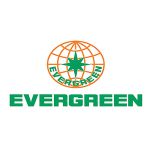


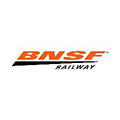
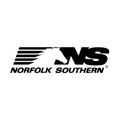
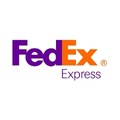

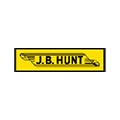
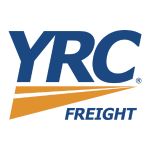



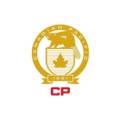


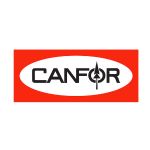

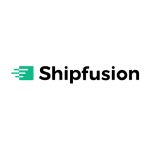

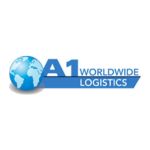

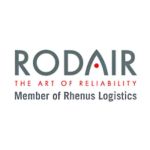

This resource page is for Ozone gas detectors
To facilitate our customer’s, select our products, we have further classified logic analyzers by their features:
Alarm-enabled, Benchtop, Electrochemical, Handheld, High precision, Outdoor, Data logging, Multi-gas detection, Rugged, Wide-range, and Wireless
Below are other resources containing useful information on logic analyzers:
FAQs on Ozone Gas Detectors on GAOTek.com
How to Choose an Ozone Gas Detector
Components of an Ozone Gas Detector
Operation, Maintenance & Calibration of an Ozone Gas Detector
Customers in the U.S. and Canada of Ozone Gas Detectors
Contact Us
Here are GAO Tek’s Ozone gas detectors and they are further organized by feature:
Alarm-enabled, Benchtop, Electrochemical, Handheld, High precision, Outdoor, Data logging, Multi-gas detection, Rugged, Wide-range, and Wireless
We ship overnight to anywhere in the continental U.S. and Canada from one of our local warehouses.
If you have any questions about our products or want to place an order, our technical experts can help you.
Please Fill out this form or email us
